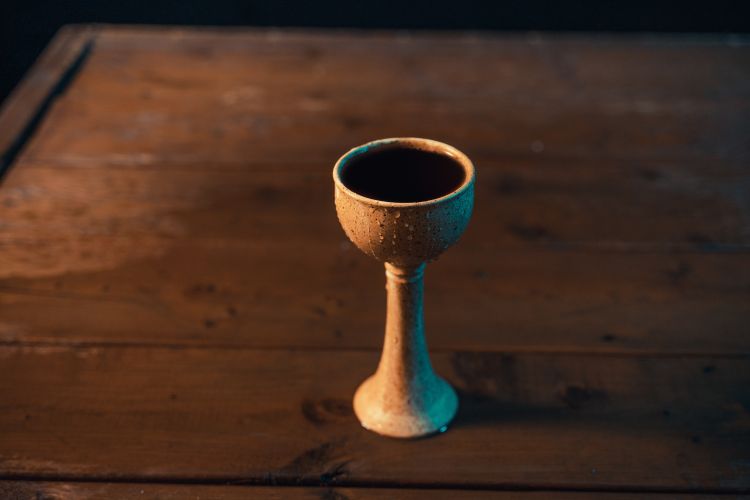
Churches in the United States may have a number of problems, but we often feed our people with generosity and abandon. Families that are experiencing sickness, grief, or other life-disrupting events are usually not lacking for casseroles or pasta.
U. S. churches also shine when it comes to gathering for meals. Though our offered dishes tend to lean in predictable directions—meat and cheese: yes, leafy greens: not so much—the Sunday pot luck is usually a hearty feast.
However, a pot luck meal is decidedly unlike another vital, Christian meal—the Lord’s supper—in at least two important ways. Seeing these differences will help us better appreciate both kinds of meals.
We Don’t Bring Food to the Lord’s Supper
Part of the beauty of a pot luck is that everyone who is able contributes. There’s no concern about matching serving plates or coordinated side dishes. We make food at home and take it to share.
But, not to put too fine a point on it, the Lord’s supper is the Lord’s supper. He instituted it (Matthew 26:26–29) and he provides the meal. Jesus sets the table and determines the guest list. He even gives those who are invited the inclination to attend.
We could never cook well enough to earn a seat at this table. We couldn’t do anything to deserve a reservation. This is the wonder of the Lord’s table—Jesus gathers his people around this sustaining meal by grace through faith.
We Know What’s on the Menu at the Lord’s Supper
At a true pot luck meal, the menu is a surprise. (The stuffiest among us might push for a phrase more like “pot providence,” but that introduces an entirely different set of questions these days.) We pick from among the dishes offered, but those dishes are made at the whim and inclination of someone else in the fellowship. Though it’s not likely, it’s possible such a gathering may produce 14 giant bowls of spaghetti and three trays of brownies.
At the Lord’s supper, we know exactly what’s available. We get Christ himself!
Read these words carefully.
For I received from the Lord what I also delivered to you, that the Lord Jesus on the night when he was betrayed took bread, and when he had given thanks, he broke it, and said, “This is my body, which is for you. Do this in remembrance of me.” In the same way also he took the cup, after supper, saying, “This cup is the new covenant in my blood. Do this, as often as you drink it, in remembrance of me.” For as often as you eat this bread and drink the cup, you proclaim the Lord’s death until he comes. (1 Corinthians 11:23–26)
There are many different views on exactly what’s going on when we take the Lord’s supper. However, Paul indicated that the bread and cup were offered by Jesus to his apostles as his body and blood. We also are to “eat this bread and drink the cup.” We are to take in Christ and all of the nourishment he provides.
Jesus’s use of a meal here is illuminating. However much we depend on eating food and drinking water, we depend much, much more on Christ! Do we understand our need for Jesus to be this deep and desperate?
We know—at least intellectually—what happens to us if we do not eat for a time; we may have read about what happens to the human body when it goes too long without water. What would happen to you without Christ? How dramatically would your soul shrivel, spasm, or seize without the work and grace of Jesus? If we could not come and be nourished by the very Son of God, where would we be?
Come and Proclaim
What generosity our God shows by regularly feeding us and providing what we need! We are welcomed, loved, and nourished at his table.
So, come! Jesus is given for you. Join with your brothers and sisters to “proclaim the Lord’s death” until he comes!
- Links for the Weekend (2026-02-13) - February 13, 2026
- Links for the Weekend (2026-02-06) - February 6, 2026
- The Parable of the Dog and the New Master - February 4, 2026

